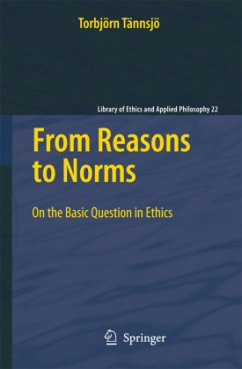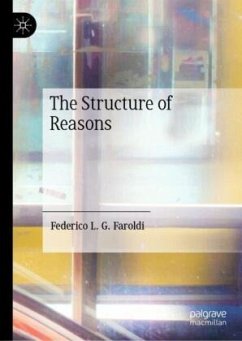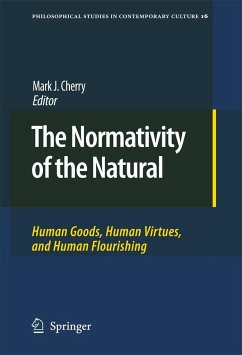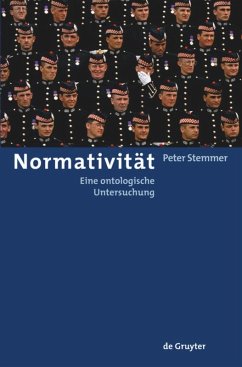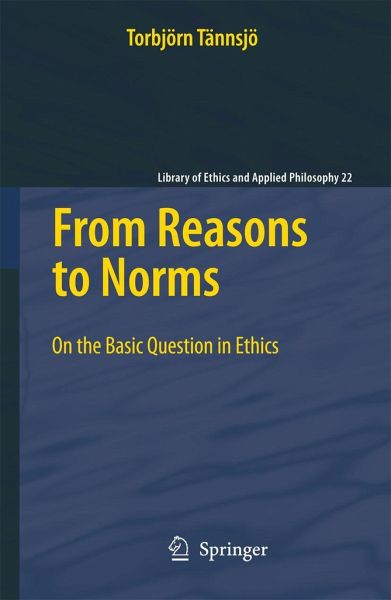
From Reasons to Norms
On the Basic Question in Ethics
Versandkostenfrei!
Versandfertig in 6-10 Tagen
76,99 €
inkl. MwSt.
Weitere Ausgaben:

PAYBACK Punkte
38 °P sammeln!
Metaethics is the inquiry into the nature of morality (or ethics, I use the words 'morality', 'morals', and 'ethics' as synonyms). When we pass moral judgements, what kind of claims are we then making? I speak of this as the semantic metaethical question. a re there moral facts, to be discovered by us and existing independently of our thoughts and conceptualisation? I speak of this as the ontological or me- physical metaethical question. a nd, if there are, can we know about them; and, if we can, how do we get this kind of knowledge? I speak of this as the epistemic metaethical question. a ll ...
Metaethics is the inquiry into the nature of morality (or ethics, I use the words 'morality', 'morals', and 'ethics' as synonyms). When we pass moral judgements, what kind of claims are we then making? I speak of this as the semantic metaethical question. a re there moral facts, to be discovered by us and existing independently of our thoughts and conceptualisation? I speak of this as the ontological or me- physical metaethical question. a nd, if there are, can we know about them; and, if we can, how do we get this kind of knowledge? I speak of this as the epistemic metaethical question. a ll these metaethical questions, the semantic, the ontological, and the epistemic ones, are raised and discussed in this book, but they are not the core questions raised. I have been more concerned with another kind of questions, which deserve to be called metaethical as well: what are the problems of morality? a re there many different moral questions, or, do they all, in the final analysis, reduce to only a few, or perhaps just one? t his question is of special importance to a non-naturalist objectivist and realist like the present author, who believes that we do make truth-claims when we pass moral judgements and who believes that there is a truth in these matters so that we must face the possibility that even our most cherished moral judgements may be false.





